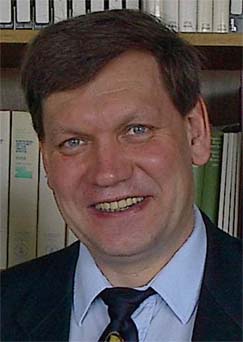Project Win Announcements - Biodemography of Exceptional Longevity
-- 'Books Forum' blog
-- 'Health Studies' blog
Greetings,
Here is an interesting announcement from the President's Office of the National Opinion Research Center, NORC, at the University of Chicago:
Key words:
--------------
From: President's Office
To: SP-All NORC Employees
Subject: Project Win Announcements - Biodemography of Exceptional Longevity
Biodemography of Exceptional Longevity
Senior Vice President and Director of the Academic Research Centers, is pleased to announce that NORC will study why people live to be 100 years or older.
The new study Biodemography of Exceptional Longevity in the United States is led co-investigators Leonid Gavrilov and Natalia Gavrilova, Research Associates in NORC’s Center on Aging. This husband-and-wife team has written extensively on extreme longevity. Their work has recently shown that longevity can be linked to a mother’s age at her child’s birth, birthplace within in the United States and family socioeconomic background.
The investigators will look at effects of early-life conditions, adult physical characteristics, and marriage and reproductive history on exceptional longevity. The new study takes advantage of U.S. Census and Social Security Administration data, genealogies, and military draft records. Researchers at the universities of Pennsylvania, Utah, and Wisconsin will also collaborate.
The project plan’s innovative use of data was called “exciting” by one of the reviewers at the sponsoring National Institute on Aging. Reviewers also commented favorably on other aspects, notably the strength of the research team and the overall significance of the project aims. The proposal was rated as being among the top 5 percent of all scored proposals reviewed by the NIH.
To read more about the Gavrilovs longevity studies, visit their scientific website at http://longevity-science.org/ ; also you can post your questions and comments at their discussion blog at: http://longevity-science.blogspot.com/
----------------------------------------------
Longevity, centenarians, biodemography, NIH, NIA, longevity genes, parental age, birth order, early-life living conditions, adult physical characteristics, reproductive history, Biodemography of Exceptional Longevity, Leonid Gavrilov, Natalia Gavrilova, Center on Aging, United States, National Institute on Aging, National Institutes of Health, Social Security Administration datasets, Census data, family reconstitutions, genealogies, military draft records, early-life childhood conditions, National Opinion Research Center, NORC, University of Pennsylvania, University of Utah, University of Wisconsin-Madison.
Home:
Longevity Science Blog
and
Project Win Announcements - Biodemography of Exceptional Longevity
Shorter weblink:
http://tinyurl.com/bjawmu
Links to this post:
- Longevity study to be conducted by the National Opinion Research Center
.
Labels: Biodemography, Biodemography of Exceptional Longevity, Centenarians, Leonid Gavrilov, longevity, Natalia Gavrilova, National Opinion Research Center, NIA, NIH, NIH grant, NORC


